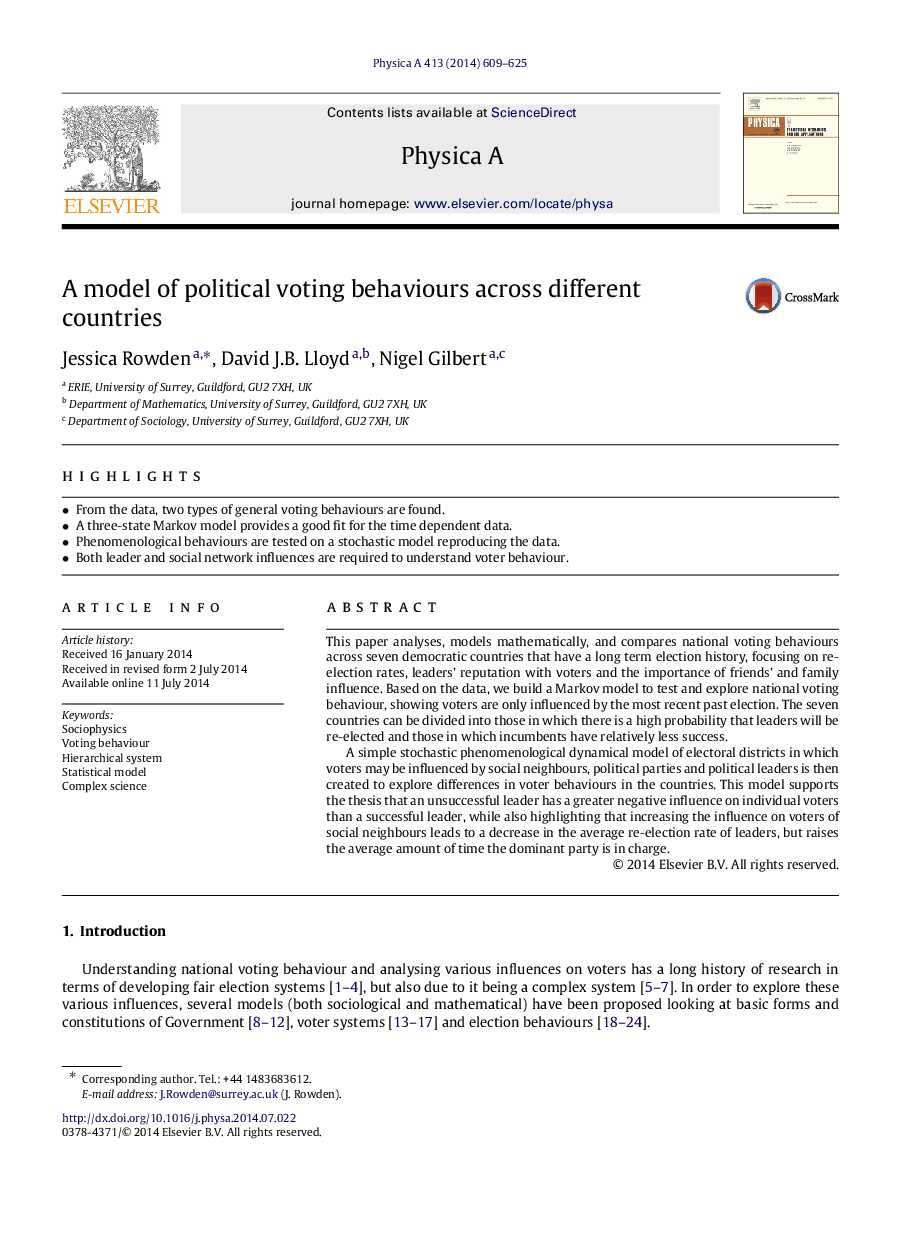| Article ID | Journal | Published Year | Pages | File Type |
|---|---|---|---|---|
| 7380763 | Physica A: Statistical Mechanics and its Applications | 2014 | 17 Pages |
Abstract
A simple stochastic phenomenological dynamical model of electoral districts in which voters may be influenced by social neighbours, political parties and political leaders is then created to explore differences in voter behaviours in the countries. This model supports the thesis that an unsuccessful leader has a greater negative influence on individual voters than a successful leader, while also highlighting that increasing the influence on voters of social neighbours leads to a decrease in the average re-election rate of leaders, but raises the average amount of time the dominant party is in charge.
Related Topics
Physical Sciences and Engineering
Mathematics
Mathematical Physics
Authors
Jessica Rowden, David J.B. Lloyd, Nigel Gilbert,
